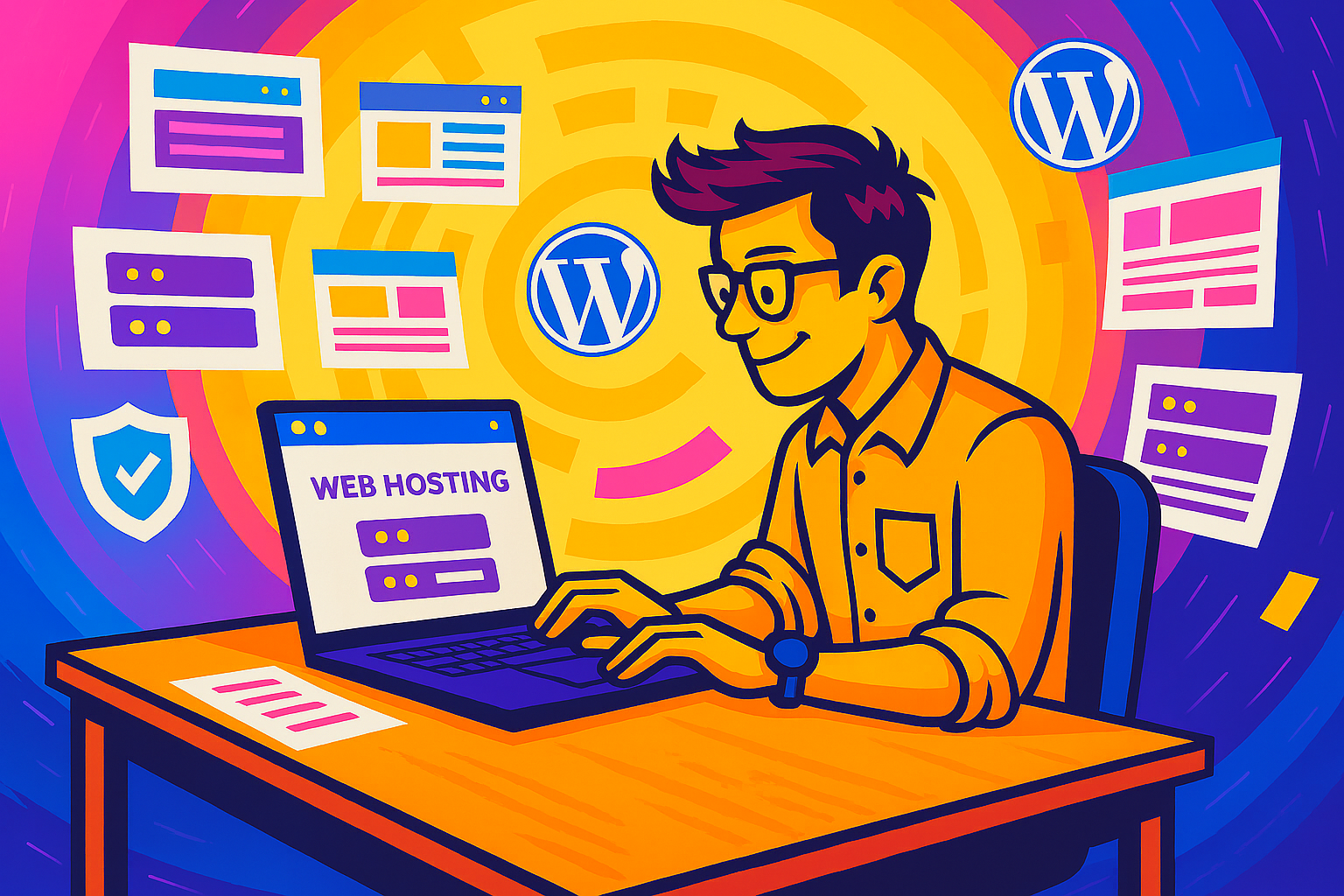Last week we talked about domain names – what they are, how much they cost, and how to choose one that fits your brand. This week, we’re moving on to the next piece of the puzzle: hosting.
If your domain name is your address, hosting is your house. It’s where your website actually lives. Without hosting, your domain name is just a sign pointing to an empty lot.
So what is hosting, really?
Hosting is a service that stores your website’s files and makes them accessible to visitors online. When someone types in your domain name, their browser connects to your hosting provider, pulls up your site, and displays it. Simple as that.
There are a ton of hosting providers out there — GoDaddy, Ionos, Fusion Arc, Bluehost, SiteGround, and so on. Some are great. Some are… not. And some are just overpriced for what most small businesses actually need.
Here’s what to look for in a hosting provider:
- Reliability — You want your site to stay online. Look for uptime guarantees of 99.9% or better.
- Speed — A slow site turns visitors away. Good hosting helps your pages load quickly.
- Support — If something goes wrong, you want help fast. Look for providers with live chat or phone support.
- Ease of use — A clean dashboard and simple tools make life easier, especially if you’re managing things yourself.
Most basic hosting plans run around $5 – $15/month. That’s plenty for a small business, blog, or portfolio site. You don’t need a fancy VPS or dedicated server unless you’re running a high-traffic site or doing something complex.
A few tips:
- Buy your domain and hosting from the same provider if you want to keep things simple. Fewer logins, fewer billing headaches.
- Don’t overpay for features you won’t use. If you’re not running an online store or managing dozens of email accounts, skip the premium plans.
- Watch out for upsells. Some providers love to tack on extras – security tools, backups, SEO packages – that sound important but aren’t always necessary. For the most part, the only thing you might need to buy is an SSL certificate. I say “might” because most of these plans come with one as part of the base price.
- Ask your peers. If you post a question about hosting on a Facebook or LinkedIn group, you are almost guaranteed to get some real-world responses. Many times, this will be the best advice since most in unbiased.
If you’re not sure where to start, I usually recommend Fusion Arc for the more technical, Ionos if you prefer a smooth interface – both for folks who want solid performance without the sticker shock. GoDaddy’s fine too, especially if you’re already familiar with their dashboard and want something simple.
Bottom line: Hosting doesn’t have to be complicated. You just need a provider that’s reliable, fast, and easy to work with. Once you’ve got that in place, you’re ready to start building. You can always upgrade your plan when you need more oomph later.
Next week, we’ll talk about mapping out your content – what pages you need, what to put on them, and how to keep things clear and useful for your visitors.
Until then, if you’ve got questions about hosting or want help picking a provider, drop a comment or shoot me a message. I’m happy to help.
Have a great week!
Jeff

Leave a Reply